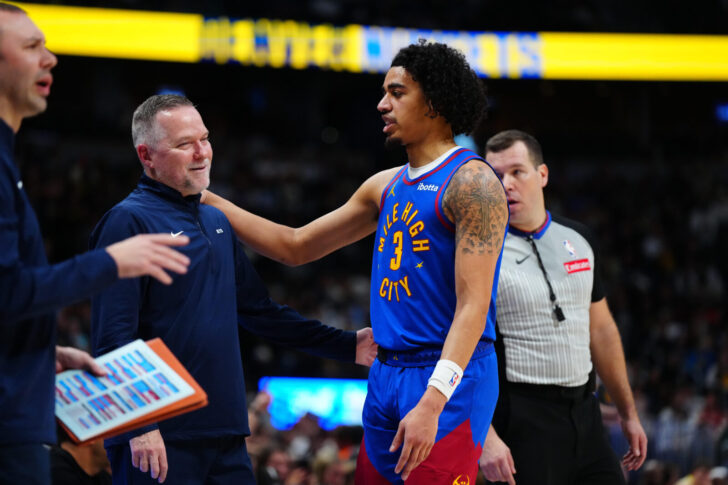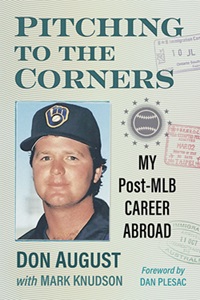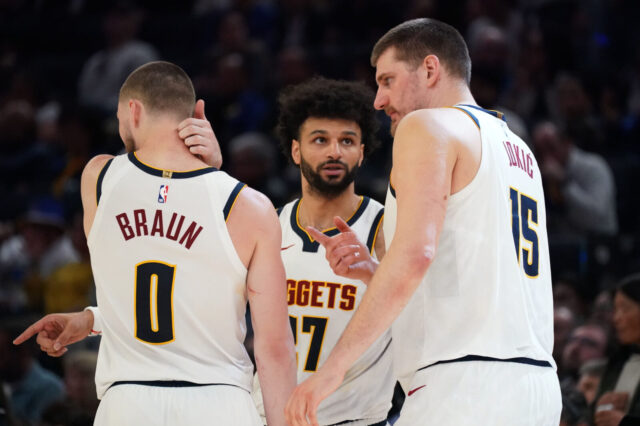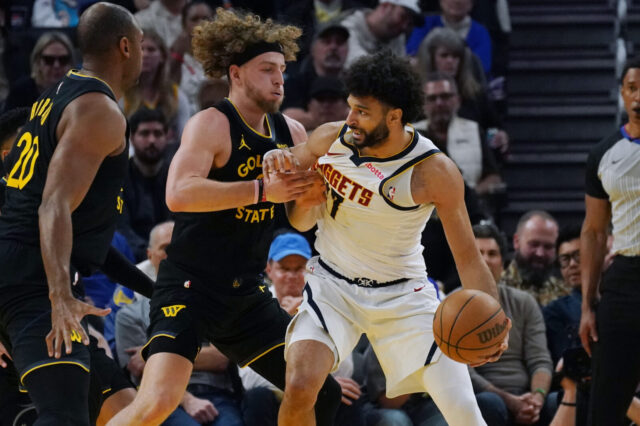Strike 2: A little creative conflict is actually a good thing.
If reports of a slight rift between Denver Nuggets general manager Calvin Booth and head coach Michael Malone are accurate – and there’s plenty of reason to believe they are – then the Nuggets are truly in a good, competitive place as they try to get back to the top of the NBA mountain.
Booth and Malone both want the same thing – for Denver to win another NBA title. The fact that they may disagree to some extent on exactly how to get there is not a bad thing. In fact, in these situations that’s exactly how the right answer eventually comes to the forefront.
For example, contrast the Nuggets current situation with the final years of the John Elway GM Era with the Denver Broncos. When he initially joined the front office, Elway did some great things, like hiring John Fox as the head coach and successfully recruiting the biggest free agent in NFL history, Peyton Manning. But after that, Elway surrounded himself with “Yes” men, and what followed was a series of unfortunate decisions, like not drafting Josh Allen, for one.
When there’s only one voice in the room and one opinion that matters, that opinion had better be right. When it’s not, Allen ends up in Buffalo.
Conversely, if there’s more “group think” involved in decision making, more often than not good ideas and solid plans emerge.
Currently the rift between Booth and Malone revolves around playing time for young reserves on the Denver roster. Booth wants his draft picks to play more, regardless of how well they perform. He’s focused on player development as a means to boost the Nuggets bench strength. “Win every night” Malone sees them take the court and immediately give back double-digit leads and he fumes. Malone is one of those coaches who only truly trusts his starters, as proven out last spring when he shortened the bench and wore out his core players by the second round of the playoffs.
Clearly there needs to be a compromise, and early in this season, we’re starting to see one play out. While Malone has stuck with Nikola Jokic and company – including new starter Christian Braun – in crunch time (including back-to-back overtime road wins) more recently he’s begun to give extra playing time to guys like Peyton Watson and Hunter Tyson. Malone appears to be trusting Julian Strawther more and more as well. Against winless Utah (a team that almost erased a 35-point halftime deficit in Denver a season ago after Malone pulled his starters) he showed trust in his bench. Even after they almost blew a 17-point second quarter lead, Malone went back to them in the second half and they delivered. The coach was able to sit his starting five for the entirety of the fourth quarter of a 129-103 Nuggets win.
Then, on Monday night, the bench came through even more. After Aaron Gordon left the game early with a calf strain, the coach had no choice but to give the GM exactly what he wanted to see. The result was a nail-biting, come from behind 121-119 Nuggets win over Toronto in a game that featured major, game-changing contributions from the team’s sophomores – Strawther, Braun, Tyson and Watson.
Both coach and GM would agree. Being able to play – and trust – several young guys off the bench – and still winning the game – is the best way to do “load management.”
Barring an unexpected major trade before the deadline in February, this is the crew that Malone will be coaching into the postseason. While they’re not yet any sort of smooth running, efficient unit, the hope is that they’ll become one by springtime. It’s a work in progress, but it’s showing promise.
In the meantime, the Nuggets will be looking up in the standings at teams like Minnesota and Oklahoma City – who rolls back into Ball Arena tonight unbeaten at 7-0 and on top of the Western Conference. They easily dispatched Denver 102-87 on opening night. That’s just how it’s going to have to be, for now.
Right now the Nuggets aren’t as good as the Thunder. Probably not as good as the Timberwolves, either. The plan/hope is that a) Denver’s veteran core can keep them somewhere near the top of the Western Conference come springtime, and b) that the reserves will improve enough by that point to take a considerable load off and help fuel a deeper postseason run.
For the coach and GM, that would be the ideal compromise.





